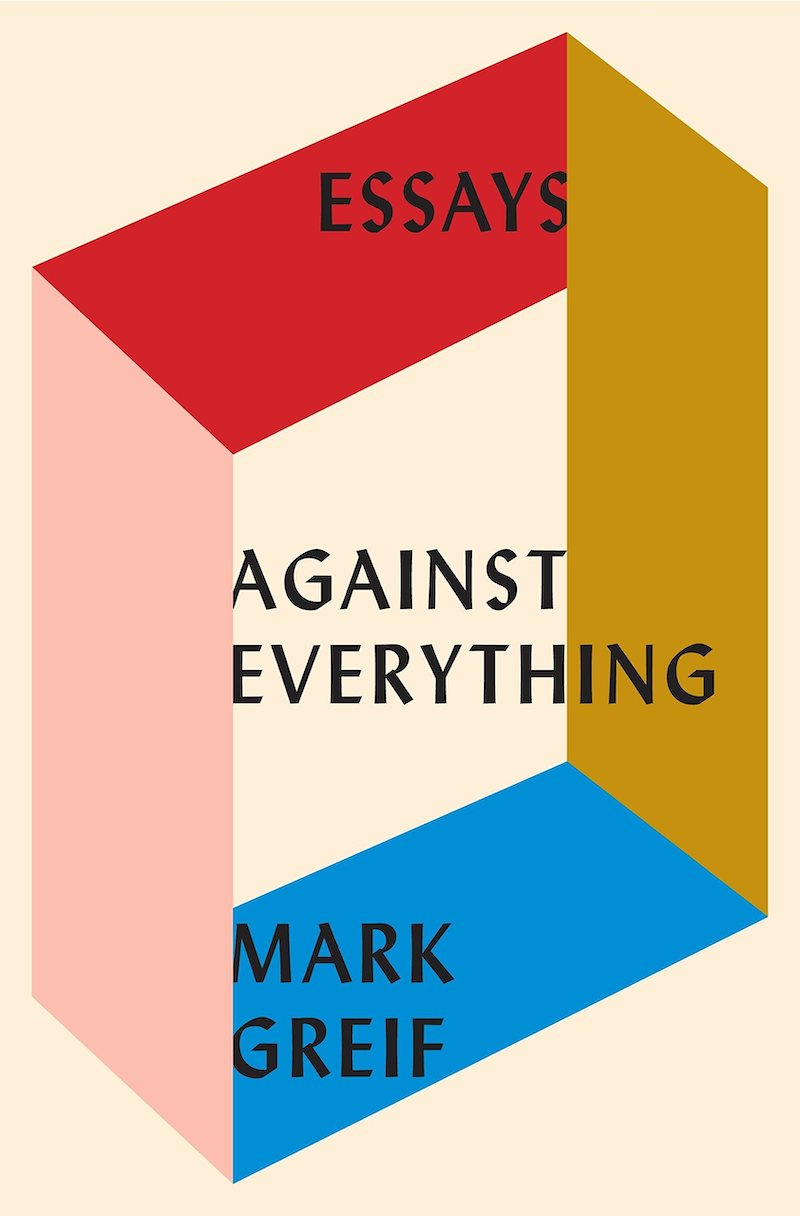
Against Everything
Mark Greif
We see our lives as a collection of experiences: "the day I met those people at the party"; "the night I lost my virginity"; "the feeling I had as a tourist in Paris" or "when I stood at the lake in the woods". These snow globes and beach rocks can be held on to, compared, and appraised for quality. You put them on a shelf, and take them down; or lie awake at night, just wondering at them. They come with stories, and you put forward your experiences as rivals to the experiences others can tell. We become lifelong collectors, and count on fixed memories to provide the substance of whatever other aims we may declare, when asked, are our real goals or reasons to live."
The meaning of life always comes down to a method of life.
Build peaks, and former highlands become flatlands — ordinary topography loses its allure. The attempt to make our lives not a waste, by seeking a few most remarkable incidents, will make the rest of our lives a waste.
The discipline is to learn to see the rest of the world in just the same way. Let anyone's ordinary face fascinate you as if it were a bust of Caesar. [...] «For anything to become interesting, you simply have to look at it for a long time» wrote Flaubert. Life becomes the scene of total, never-ending experience. [...] For the adept of aestheticism, experience is not rare; it is always available.
Regard all things as you would a work of art.
Perfectionism, in contract, puts the self before everything. It charges the self with weighing and choosing every behaviour and aspect of its way of living. The process of weighing — so as to 'live deliberately', in Thoreau's phrase — becomes the form of experience in perfectionism. You learn to consider the people and the things of the world as if each might suggest an example of a way you, too, could be. In becoming an example, each thing invites you to measure and change yourself.
Regard all things as if they were examples.
Experience tries to evade the disappointment of this world by adding peaks to it. Life becomes a race against time and a contest you try to win. Aestheticism and perfectionism make a modern attempt to transcend this world by a more intense attention to it — every day and in every situation. [...] One lives one's life for the daily goal of transcending, if only by a disciple of mind, the dull conditions that we fake and that someday will kill us. You live by methods that await you, at your call. You know they can go on, even to your last view of the sky, and the final question you put yourself. This, if not the last and best answer, certainly not the only answer, is still what we have longed to know. It is the meaning of life.
Stoic reason makes a man absolute master of his judgments and eradicates everything that is bad while clarifying the only thing that is truly good: the right use of choice."
Because moralists had said for so many centuries, "Sex must be controlled because it is so powerful and important," sexual liberators were seduced into saying, in opposition, "Sex must be liberated because it is so powerful and important." But in fact a better liberation would have occurred if reformers had freed sex not by its centrality to life, but by its triviality. They could have said: "Sex is a biological function — and for that reason no ground to persecute anyone."
This means that the de-emphasis of sex and the denigration of youth will have to start with an act of willful revaluation. It will require preferring the values of adulthood: intellect over enthusiasm, autonomy over adventure, elegance over vitality, sophistication over innocence — and, perhaps, a pursuit of the confirmation or repetition of experience rather than experiences of novelty.